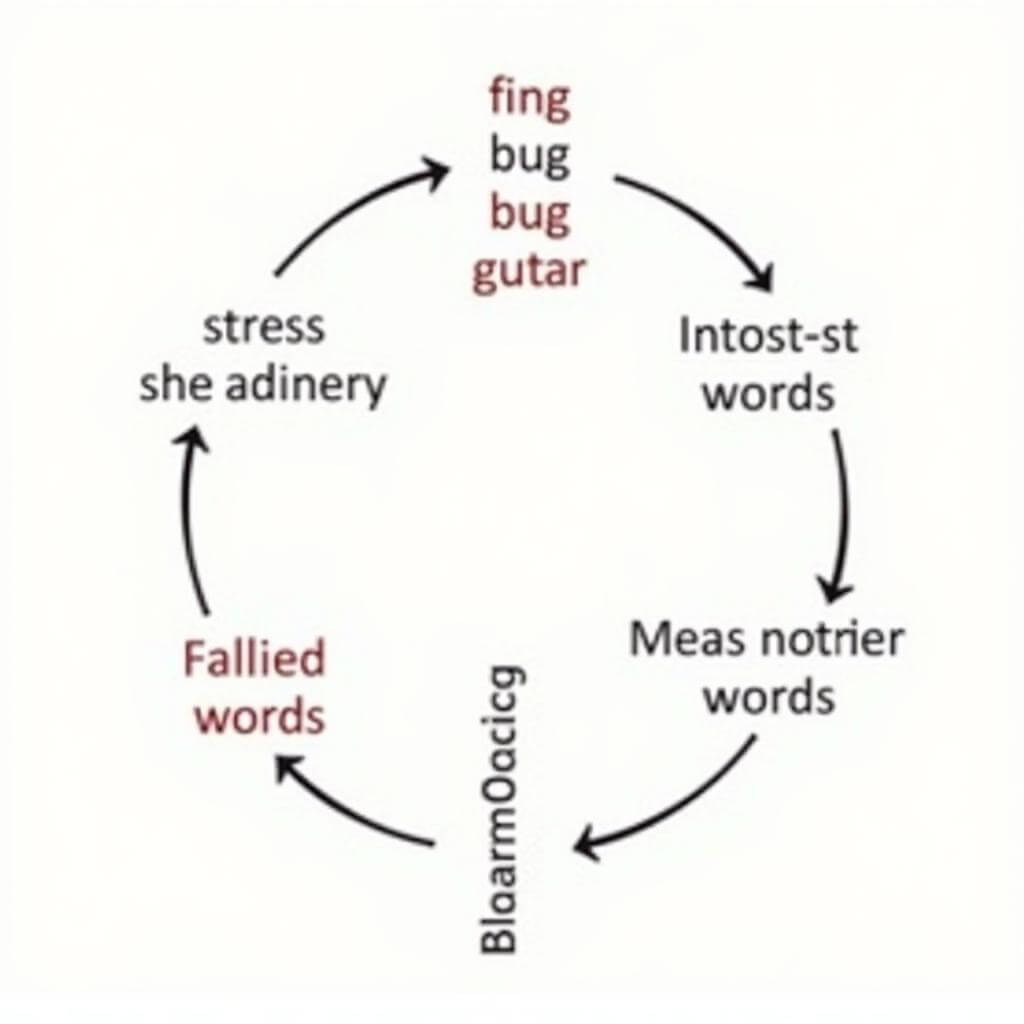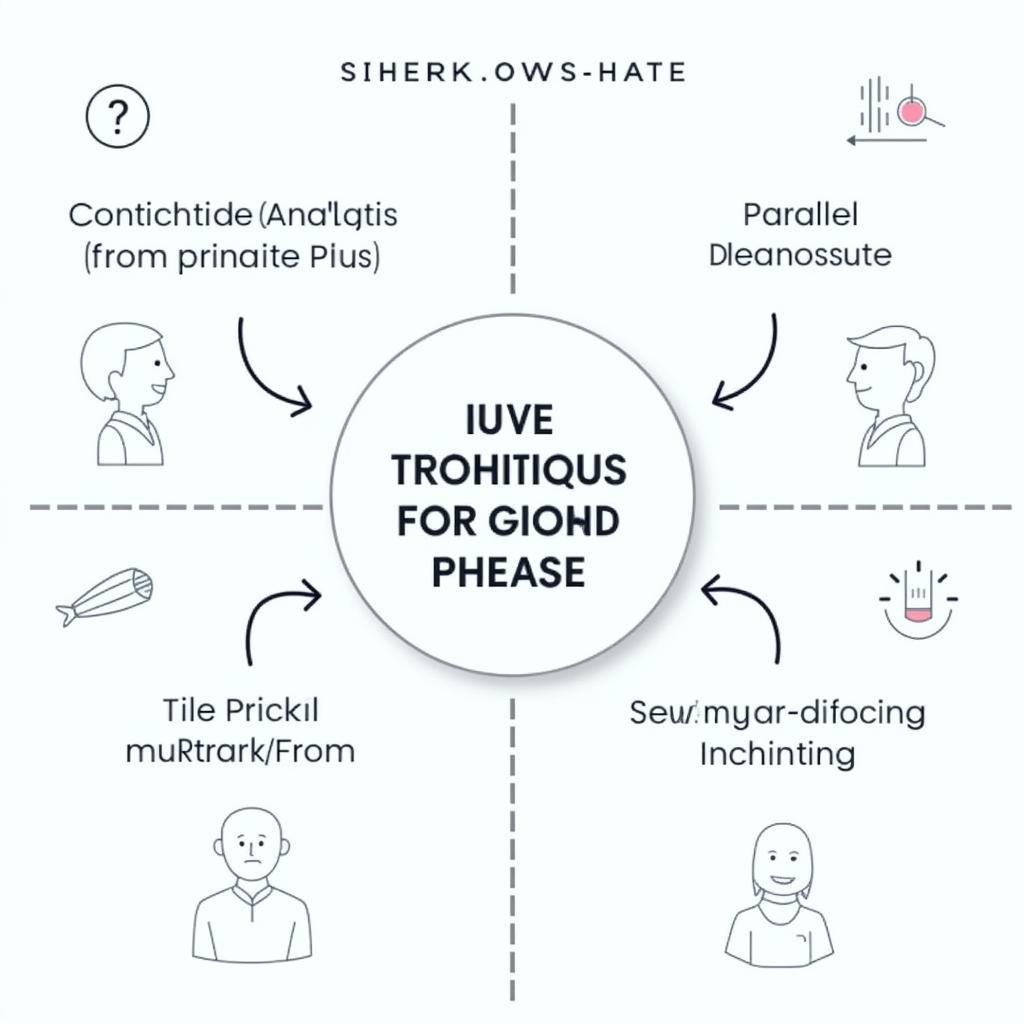IELTS listening can be challenging, but with the right strategies, you can significantly improve your score. One crucial technique is focusing on critical phrases in audio. This skill allows test-takers to efficiently identify and comprehend key information, leading to more accurate answers. Let’s explore how to develop this essential ability for IELTS success.
Understanding the Importance of Critical Phrases
Critical phrases are the backbone of IELTS listening comprehension. These key segments contain the most valuable information needed to answer questions correctly. By honing your ability to identify and focus on these phrases, you’ll:
- Save time by quickly zeroing in on relevant information
- Improve your accuracy in answering questions
- Reduce stress by feeling more in control of the listening task
Focusing on listening for details is closely related to identifying critical phrases, as both skills require careful attention to specific elements in the audio.
Strategies for Identifying Critical Phrases
1. Predict Content and Keywords
Before the audio begins, take a moment to:
- Read the questions carefully
- Underline potential keywords
- Predict the type of information you’ll need to listen for
This preparation primes your brain to focus on critical phrases related to your predictions.
2. Listen for Signpost Words
Signpost words are verbal cues that indicate important information is coming. Some examples include:
- “The main point is…”
- “It’s crucial to note…”
- “In conclusion…”
- “However…”
- “On the other hand…”
Train your ear to catch these phrases, as they often introduce critical information.
3. Pay Attention to Intonation and Stress
Speakers often emphasize critical phrases through:
- Changes in volume
- Slowing down their speech
- Using a more emphatic tone
By tuning into these vocal cues, you can more easily identify important information.
 IELTS Listening: Intonation and Stress
IELTS Listening: Intonation and Stress
4. Focus on the Beginning and End of Sentences
Critical information is often placed at the start or end of sentences. Train yourself to pay extra attention to these parts of speech.
5. Practice Active Listening
Engage with the audio by:
- Visualizing the content
- Mentally summarizing key points
- Anticipating what might come next
This level of engagement helps you stay focused and alert to critical phrases.
Techniques for Focusing on Critical Phrases
- Develop your note-taking skills: Jot down key words and phrases quickly and efficiently.
- Use abbreviations and symbols: Create a personal shorthand to speed up your note-taking.
- Practice with varied accents: Familiarize yourself with different English accents to improve your overall comprehension.
- Improve your vocabulary: A broader vocabulary makes it easier to recognize and understand critical phrases.
- Train your working memory: Enhance your ability to hold information in your mind while processing new input.
Dr. Emily Chen, an experienced IELTS trainer, emphasizes: “The key to mastering IELTS listening is not just hearing words, but actively seeking out and focusing on the critical phrases that convey core meaning.”
Identifying paraphrases in listening is another crucial skill that complements focusing on critical phrases, as it helps you recognize key information even when it’s expressed differently.
Common Challenges and Solutions
Challenge 1: Speed of Speech
Solution: Practice with audio at various speeds. Start slower and gradually increase the pace as you improve.
Challenge 2: Unfamiliar Accents
Solution: Expose yourself to a wide range of English accents through podcasts, news broadcasts, and IELTS practice materials.
Challenge 3: Distractions
Solution: Practice in environments with background noise to improve your focus and concentration.
Challenge 4: Missing Key Information
Solution: Develop your prediction skills and learn to quickly refocus if you miss something important.
Focusing on speaker’s emotional tone can provide additional context clues to help you identify critical phrases and understand the speaker’s intent.
Advanced Techniques for Critical Phrase Recognition
- Contextual Analysis: Learn to quickly assess the context of the conversation to anticipate critical phrases.
- Parallel Processing: Train your brain to simultaneously listen, process, and prepare for the next question.
- Semantic Grouping: Organize information into meaningful categories as you listen to enhance recall.
- Inference Skills: Develop the ability to deduce meaning from context when you miss specific words.
 IELTS Listening: Critical Phrase Recognition Techniques
IELTS Listening: Critical Phrase Recognition Techniques
IELTS expert James Thompson notes: “Mastering the art of focusing on critical phrases is like developing a sixth sense for important information. It’s a skill that not only improves your IELTS score but enhances your overall English proficiency.”
Practical Exercises to Improve Your Skills
- Shadow Speaking: Repeat what you hear immediately after the speaker, focusing on critical phrases.
- Gist Extraction: Listen to short audio clips and summarize the main points in one sentence.
- Keyword Bingo: Create bingo cards with likely keywords and mark them off as you hear them in practice audio.
- Transcription Practice: Transcribe short audio segments, paying special attention to critical phrases.
- Question Prediction: Given a set of questions, predict possible critical phrases that might appear in the audio.
Focusing on keywords in complex sentences is a complementary skill that can further enhance your ability to identify and understand critical phrases in more challenging contexts.
Integrating Critical Phrase Focus into Your IELTS Preparation
- Incorporate critical phrase recognition into your daily listening practice.
- Use official IELTS practice tests to familiarize yourself with the exam format and typical critical phrases.
- Record yourself identifying critical phrases and review your performance.
- Practice with a study partner, taking turns creating audio with embedded critical phrases.
- Regularly assess your progress and adjust your study plan accordingly.
Identifying speaker bias in audio can provide valuable insights into the speaker’s perspective, helping you anticipate and recognize critical phrases that align with their viewpoint.
Conclusion
Focusing on critical phrases in audio is a fundamental skill for IELTS listening success. By implementing the strategies and techniques outlined in this guide, you’ll be well-equipped to tackle the listening section with confidence. Remember, consistent practice and a targeted approach to identifying key information will significantly improve your performance. Keep refining your skills, and you’ll be well on your way to achieving your desired IELTS score.
FAQs About Focusing on Critical Phrases in IELTS Listening
-
Q: How can I improve my ability to recognize critical phrases quickly?
A: Regular practice with varied audio sources, developing prediction skills, and familiarizing yourself with common signpost words are effective ways to enhance your recognition speed. -
Q: What should I do if I miss a critical phrase during the test?
A: Stay calm, refocus quickly, and use context clues to infer the missing information. Remember, it’s better to miss one answer than to lose focus for several questions. -
Q: Are critical phrases always explicitly stated in IELTS listening?
A: Not always. Sometimes critical information is implied or paraphrased, which is why developing strong inference skills is important. -
Q: How many critical phrases should I expect in each IELTS listening section?
A: The number varies, but generally, each question will have at least one associated critical phrase. Focus on identifying the most relevant information for each question. -
Q: Can focusing on critical phrases help in other parts of the IELTS test?
A: Yes, this skill can be beneficial in the reading section and can improve your overall English comprehension, which is useful for all parts of the test. -
Q: Is it necessary to understand every word to identify critical phrases?
A: No, understanding every word is not essential. Focus on grasping the main ideas and key information related to the questions. -
Q: How long should I practice focusing on critical phrases before the IELTS test?
A: Ideally, incorporate this technique into your regular study routine for at least 4-6 weeks before the test for significant improvement.


